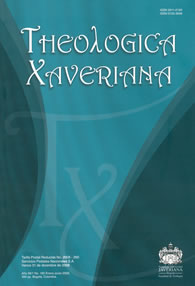Abstract
The author recalls the reception history of the small prophetic book of Jonah, and in particular of its main actor, the prophet Jonah. Many and diverse have been the identifications proposed for the prophet Jonah. In the reception history Jonah has become a true metaphor to represent a vast array of figures, characters, attitudes, possibilities of being. Many of these identifications reflect what Bathkin called “dominant reading traditions”. Applying the theory of social memory (Halbwachs), the author explores a new way of seeing Jonah and his role in the book and asks in which measure Jonah should be seen as a bearer of the social memory of the little ones, those that are sacrified for the benefit of the big empires.
This journal is registered under a Creative Commons Attribution 4.0 International Public License. Thus, this work may be reproduced, distributed, and publicly shared in digital format, as long as the names of the authors and Pontificia Universidad Javeriana are acknowledged. Others are allowed to quote, adapt, transform, auto-archive, republish, and create based on this material, for any purpose (even commercial ones), provided the authorship is duly acknowledged, a link to the original work is provided, and it is specified if changes have been made. Pontificia Universidad Javeriana does not hold the rights of published works and the authors are solely responsible for the contents of their works; they keep the moral, intellectual, privacy, and publicity rights.
Approving the intervention of the work (review, copy-editing, translation, layout) and the following outreach, are granted through an use license and not through an assignment of rights. This means the journal and Pontificia Universidad Javeriana cannot be held responsible for any ethical malpractice by the authors. As a consequence of the protection granted by the use license, the journal is not required to publish recantations or modify information already published, unless the errata stems from the editorial management process. Publishing contents in this journal does not generate royalties for contributors.


